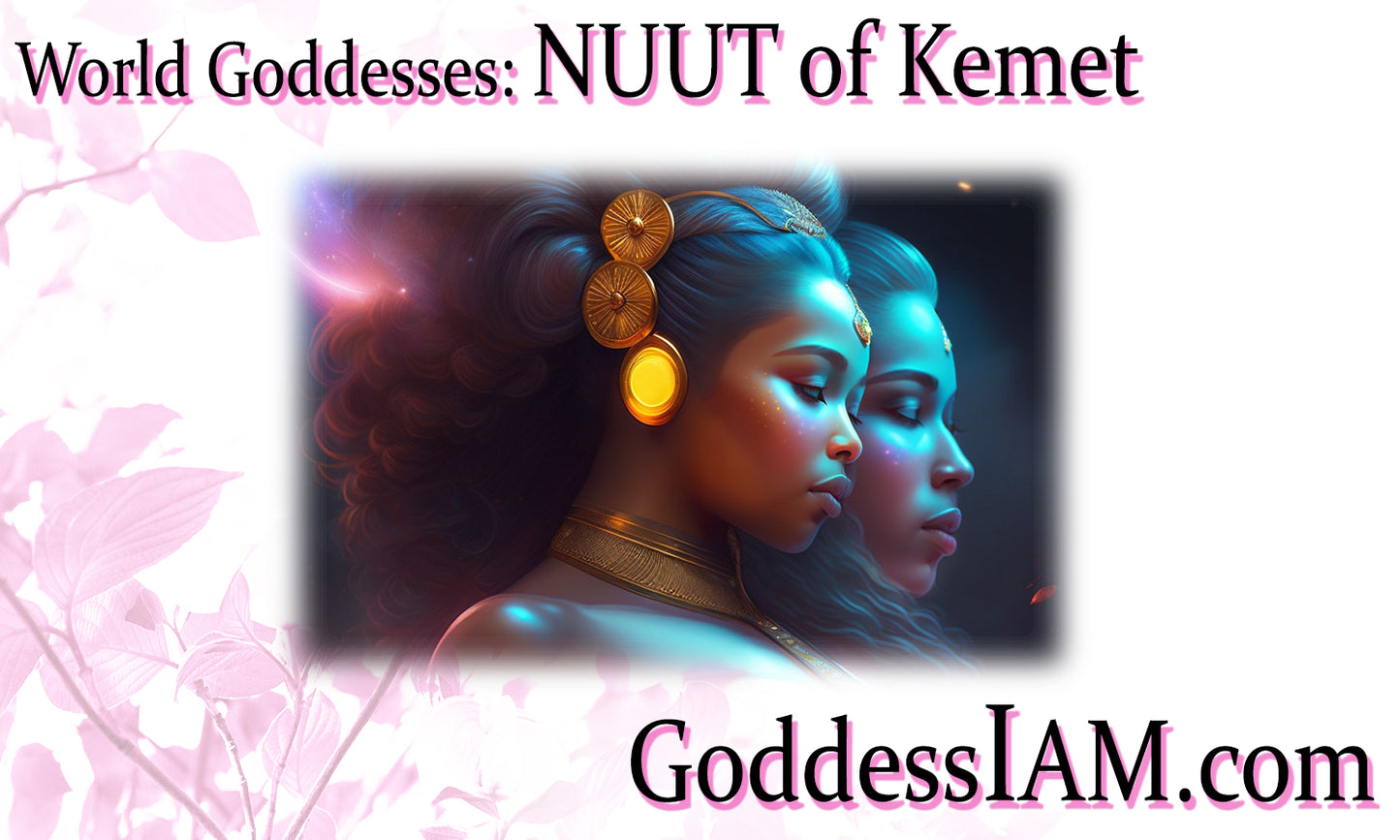
The ancient Egyptian pantheon boasts a rich tapestry of deities, each with their unique characteristics and influences. Among them, Goddess Nuut stands as a powerful figure associated with the sky, cosmic order, and the cycles of life. This essay aims to delve into the divine essence of Nuut and her profound relevance to women's issues throughout history.
Goddess Nuut: A Cosmic Maternal Figure: In ancient Egyptian mythology, Nuut is revered as the sky goddess, representing the vast expanse that covers and nurtures all of creation. Often depicted as a celestial body adorned with stars, she embodies the archetypal maternal presence, symbolizing birth, nourishment, and protection. Nuut's divine attributes highlight the essential role of women in nurturing and sustaining life.
Empowerment and Equality: Nuut's association with the heavens signifies her lofty status and divine authority. This depiction aligns with the notion of gender equality prevalent in ancient Egypt. Unlike many other ancient cultures, where women were marginalized, Egyptian society allowed women to hold positions of power and authority. Nuut's representation reflects the recognition of women's inherent strength and their ability to occupy positions of significance.
Fertility and Creation: Nuut's connection to fertility and creation extends beyond physical birth. She symbolizes the creative potential within all individuals, emphasizing the importance of women's unique abilities to nurture ideas, dreams, and projects. In this context, Nuut serves as an empowering force for women, inspiring them to embrace their creative gifts and realize their full potential.
Cosmic Order and Balance: Nuut's overarching presence signifies the concept of Ma'at, the ancient Egyptian principle of cosmic order and harmony. In a society where balance was paramount, Nuut's association with Ma'at reinforces the importance of equity and justice. Her presence serves as a reminder that women's voices and perspectives are vital for creating a harmonious society where gender equality prevails.
Cycles of Life and Transformation: As the goddess of the sky, Nuut embodies the cyclical nature of life, including birth, death, and rebirth. This symbolism connects deeply with women's experiences, particularly with regards to menstruation, pregnancy, and menopause. Nuut's association with these transformative phases highlights the sacredness and power inherent in women's bodies, encouraging a deeper understanding and appreciation of the female experience.
Nurturing and Healing: Nuut's role as a maternal figure extends beyond physical childbirth. She embodies the nurturing qualities that women possess, emphasizing the importance of compassion, empathy, and healing. Women have historically played a significant role in healthcare, both as caregivers and healers. Nuut's divine presence underscores the importance of recognizing and valuing women's contributions in the realm of nurturing and healing.
Resurgence of the Divine Feminine: In contemporary times, there has been a resurgence of interest in goddess spirituality and the reclamation of the divine feminine. Nuut's presence resonates with women who seek to reconnect with their innate power, wisdom, and spiritual essence. Exploring Nuut's mythology and integrating her principles into personal and collective practices can foster a sense of empowerment, healing, and unity among women.
Conclusion: Goddess Nuut, the sky goddess of ancient Egypt, offers profound insights and inspiration to women's issues. Her representation as a cosmic maternal figure, symbolizing birth, nurturing, and creative potential, highlights the inherent strength and power of women. Nuut's association with cosmic order, balance, and transformation reinforces the importance of gender equality and the recognition of women's unique contributions to society.
